Ever been startled by the sound of your beloved pup coughing? It’s a concerning noise, often prompting questions about its cause and significance. Why do dogs cough? Is it a sign of a serious health issue, or just a passing irritation? Understanding the reasons behind dog coughing is essential for every responsible pet owner. In this comprehensive guide, we’ll delve into the various factors contributing to canine coughing, from benign reasons to potential health concerns. So, let’s embark on this journey to demystify dog coughing together!
Contents Overview
Understanding Canine Coughing: A Closer Look
Dog coughing is a common occurrence that can stem from various underlying causes, ranging from mild irritations to potentially serious health conditions. Let’s delve deeper into the intricacies of canine coughing to grasp its nuances and implications fully.
- Kennel Cough (Infectious Tracheobronchitis):
- Description: Kennel cough is a contagious respiratory infection caused by a combination of viruses and bacteria, such as Bordetella bronchiseptica, parainfluenza virus, and adenovirus.
- Symptoms: Dogs with kennel cough typically exhibit a dry, honking cough, often likened to the sound of a goose honking. This cough may be accompanied by retching, gagging, and occasionally, nasal discharge.
- Transmission: Dogs can contract kennel cough through close contact with infected animals, particularly in environments where dogs congregate, such as kennels, dog parks, or grooming facilities.
- Treatment: Mild cases of kennel cough often resolve on their own, but in more severe cases, veterinarians may prescribe antibiotics to target bacterial infections. Cough suppressants and supportive care may also be recommended to alleviate symptoms.
- Heart Disease:
- Description: Certain heart conditions, such as congestive heart failure or heartworm disease, can lead to coughing in dogs. Heart-related coughing typically occurs due to fluid buildup in the lungs or irritation of the airways.
- Symptoms: Dogs with heart-related coughing may experience coughing spells, particularly at night or after physical activity. Other symptoms may include exercise intolerance, lethargy, rapid breathing, and difficulty breathing.
- Diagnosis: Veterinarians may perform a thorough physical examination, along with diagnostic tests such as chest X-rays, electrocardiography (ECG), or echocardiography, to assess heart function and identify underlying issues.
- Treatment: Treatment for heart-related coughing varies depending on the specific condition diagnosed. It may include medications to manage heart disease, such as diuretics to reduce fluid buildup, heartworm treatment, and lifestyle modifications.
- Collapsed Trachea:
- Description: Collapsed trachea, also known as tracheal collapse, is a common respiratory condition in small dog breeds, including Chihuahuas, Yorkshire Terriers, and Pomeranians. It involves weakening or collapse of the cartilage rings that support the trachea, leading to coughing and breathing difficulties.
- Symptoms: Dogs with a collapsed trachea may experience coughing, especially during excitement, exercise, or when pulling on a leash. The cough may sound harsh or honking and may worsen with pressure on the trachea.
- Diagnosis: Diagnosis typically involves a combination of physical examination, X-rays, and, in some cases, specialized imaging studies such as fluoroscopy or bronchoscopy to evaluate the trachea’s structure.
- Treatment: Treatment for collapsed trachea aims to manage symptoms and improve quality of life. It may include weight management, avoiding triggers that exacerbate coughing, using harnesses instead of collars for leash-walking, and medications such as cough suppressants or bronchodilators.
- Canine Influenza:
- Description: Canine influenza, or dog flu, is a contagious respiratory disease caused by influenza viruses, primarily H3N8 and H3N2 strains. It spreads rapidly among dogs in close contact, such as boarding facilities, shelters, or dog shows.
- Symptoms: Dogs with canine influenza may develop coughing, nasal discharge, fever, lethargy, and reduced appetite. In severe cases, pneumonia and respiratory distress may occur.
- Diagnosis: Veterinarians may perform diagnostic tests such as PCR (polymerase chain reaction) or serology to detect the presence of influenza virus antibodies or genetic material.
- Treatment: Treatment for canine influenza focuses on supportive care, including rest, hydration, and medications to manage symptoms such as coughing and fever. In severe cases, hospitalization and intravenous fluids may be necessary.
- Allergies:
- Description: Dogs can suffer from allergies to various environmental triggers, including pollen, dust mites, mold spores, and certain foods. Allergic reactions can lead to respiratory symptoms such as coughing, sneezing, wheezing, and nasal discharge.
- Symptoms: Dogs with allergies may exhibit coughing, along with itching, scratching, licking, and redness of the skin. Respiratory symptoms may worsen during allergy seasons or after exposure to specific allergens.
- Diagnosis: Diagnosis of allergies in dogs often involves ruling out other potential causes of respiratory symptoms through a combination of physical examination, skin or blood tests, and dietary trials.
- Treatment: Treatment for allergic coughing may include avoiding known allergens, implementing environmental controls such as air purifiers, using hypoallergenic diets, and medications such as antihistamines, corticosteroids, or immunotherapy (allergy shots).
- Foreign Objects:
- Description: Dogs are naturally curious animals prone to exploring their surroundings with their mouths. Ingestion of foreign objects, such as small toys, bones, or plant material, can lead to coughing if the object becomes lodged in the throat or airways.
- Symptoms: Coughing due to a foreign object may be sudden and intense, especially if the object obstructs the airway. Other signs may include gagging, retching, difficulty breathing, and pawing at the mouth.
- Diagnosis: Diagnosis typically involves a thorough physical examination, along with imaging studies such as X-rays or endoscopy to visualize and locate the foreign object.
- Treatment: Treatment for coughing caused by a foreign object may involve removing the object under sedation or anesthesia. In some cases, surgical intervention may be necessary to safely retrieve the object and resolve the obstruction.
- Chronic Bronchitis:
- Description: Chronic bronchitis is a respiratory condition characterized by long-term inflammation of the airways, leading to coughing, wheezing, and difficulty breathing. It is often seen in older dogs and may be exacerbated by environmental factors such as smoke, pollution, or respiratory infections.
- Symptoms: Dogs with chronic bronchitis may exhibit a persistent, productive cough, along with exercise intolerance, lethargy, and increased respiratory effort. Coughing may worsen at night or after exposure to irritants.
- Diagnosis: Diagnosis of chronic bronchitis typically involves ruling out other potential causes of coughing through a combination of physical examination, chest X-rays, bronchoscopy, and diagnostic testing such as bronchoalveolar lavage (BAL).
- Treatment: Treatment for chronic bronchitis aims to manage inflammation and alleviate symptoms. It may include medications such as corticosteroids, bronchodilators, mucolytics, and antibiotics to target underlying infections. Lifestyle modifications such as avoiding smoke or environmental pollutants and maintaining a healthy weight may also be recommended.
Responding to Dog Coughing: What You Can Do
When your furry companion starts coughing, it can be concerning and may prompt you to take action. Here’s a detailed guide on how to respond effectively to your dog’s coughing episodes:
- Monitor the Cough:
- Observation: Pay close attention to the frequency, duration, and characteristics of your dog’s cough. Note whether it is dry or productive (producing phlegm), whether it occurs at specific times or situations, and any accompanying symptoms.
- Documentation: Keep a record of your observations, including when the coughing episodes occur, how long they last, and any factors that seem to trigger or worsen the cough.
- Assess Other Symptoms:
- Comprehensive Evaluation: Look for additional signs or symptoms that may accompany the coughing episodes. These may include lethargy, decreased appetite, difficulty breathing, nasal discharge, fever, or changes in behavior.
- Severity: Assess the severity of your dog’s condition based on the presence and intensity of accompanying symptoms. Severe or persistent coughing, along with other concerning signs, may warrant immediate veterinary attention.
- Consult a Veterinarian:
- Professional Assessment: If your dog’s coughing persists for more than a few days, or if you notice any worrisome symptoms, it’s crucial to seek veterinary care promptly.
- Expert Diagnosis: A veterinarian can conduct a thorough physical examination and diagnostic tests to identify the underlying cause of your dog’s coughing. These may include auscultation (listening to the lungs and heart), X-rays, blood tests, fecal examinations, and other specialized tests as needed.
- Treatment Plan: Once a diagnosis is made, your veterinarian will recommend an appropriate treatment plan tailored to address the specific underlying cause of your dog’s coughing. Treatment may include medications, lifestyle modifications, and supportive care measures.
- Avoid Exposure:
- Containment: If your dog is diagnosed with a contagious respiratory infection such as kennel cough or canine influenza, take steps to prevent the spread of the illness to other dogs.
- Isolation: Keep your sick dog isolated from other dogs to minimize the risk of transmission. Avoid visits to dog parks, grooming facilities, or other places where dogs congregate until your dog has fully recovered and is no longer contagious.
- Hygiene Practices: Practice good hygiene by regularly cleaning and disinfecting your dog’s living environment, including bedding, toys, food and water bowls, and any shared spaces.
- Provide Comfort:
- Supportive Care: Keep your dog comfortable and well-hydrated during episodes of coughing. Offer plenty of fresh water to drink and ensure your dog gets adequate rest.
- Humidification: Using a humidifier or allowing your dog to breathe in steam from a hot shower can help soothe respiratory irritation and alleviate coughing.
- Environmental Control: Minimize exposure to environmental irritants such as smoke, dust, pollen, and strong odors, which can exacerbate coughing in sensitive dogs.
- Follow Treatment Recommendations:
- Medication Administration: Administer any prescribed medications exactly as directed by your veterinarian. This may include antibiotics, cough suppressants, bronchodilators, anti-inflammatory drugs, or other medications depending on the underlying cause of your dog’s coughing.
- Compliance: Follow through with the full course of treatment as prescribed, even if your dog’s symptoms improve. Discontinuing medication prematurely can lead to incomplete resolution of the underlying condition and potential recurrence of symptoms.
- Monitoring: Keep a close eye on your dog’s response to treatment and report any changes or concerns to your veterinarian promptly. Your veterinarian may need to adjust the treatment plan based on your dog’s progress and response to therapy.
Bottom Line
In the realm of canine health, understanding why dogs cough is paramount for ensuring the well-being of our furry companions. From benign causes like kennel cough to more serious conditions such as heart disease or collapsed trachea, there’s a myriad of factors that can contribute to coughing in dogs. By staying vigilant, seeking veterinary care when needed, and following appropriate treatment protocols, we can help our canine friends stay happy, healthy, and free from bothersome coughs. So, the next time you hear your dog coughing, remember to approach it with knowledge, compassion, and proactive care.













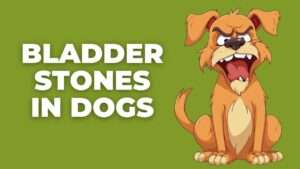
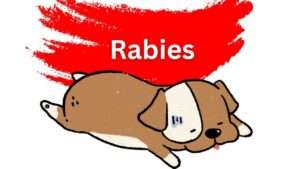


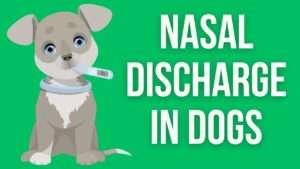
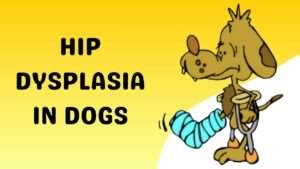
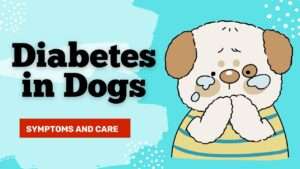

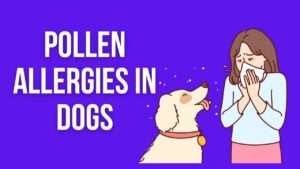

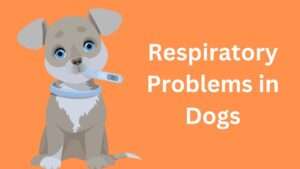
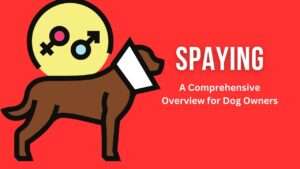
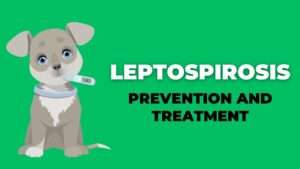
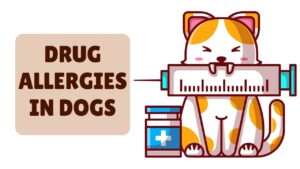
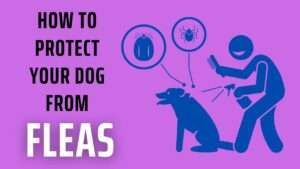
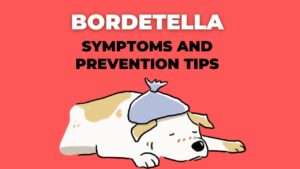







+ There are no comments
Add yours